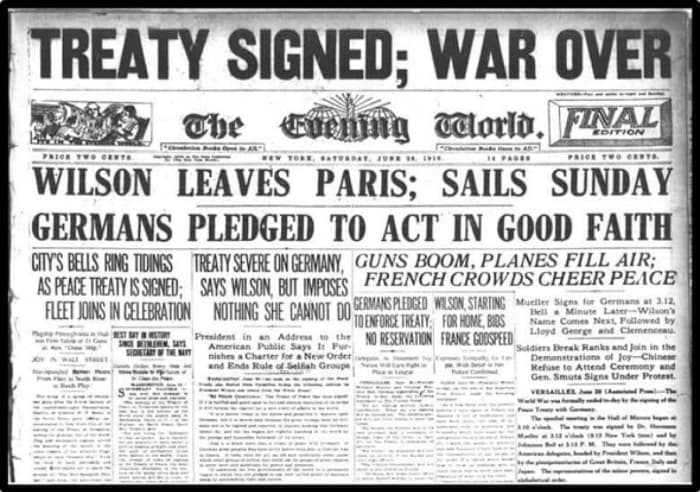 T.H.E.M.
¨We believe in the judgment; we believe this first judgment will take place as God revealed, in America...¨
T.H.E.M.
¨We believe in the judgment; we believe this first judgment will take place as God revealed, in America...¨
 T.H.E.M.
¨We believe in justice for all, whether in God or not; we believe as others, that we are due equal justice as human beings.¨
T.H.E.M.
¨We believe in justice for all, whether in God or not; we believe as others, that we are due equal justice as human beings.¨
A historic global bond-market crash threatens liquidation of the world’s most crowded trades, says BofA

‘If the bond market does not function, then no other market functions, really,’ say Ben Emons of Medley Global Advisors

Global government-bond markets are stuck in what BofA Securities analysts are calling one of the greatest bear markets ever and this is in turn threatening the ease with which investors will be able to exit from the world’s most-crowded trades, if needed.
Those trades include positions in the dollar, U.S. technology companies and private equity, said BofA strategists Michael Hartnett, Elyas Galou, and Myung-Jee Jung. Bonds are generally regarded as one of the most liquid asset classes available to investors. If liquidity dries up in that market, it’s bad news for just about every other form of investment, other analysts said.
Financial markets have yet to price in the worst-case outcomes for inflation, interest rates, and the economy around the world, despite tumbling global equities along with a selloff of bonds in the U.S. and the U.K. On Friday, the Dow industrials DJIA, +1.88% sank almost 500 points and flirted with a fall into bear-market territory, while the S&P 500 index SPX, +1.97% stopped short of ending the New York session below its June closing low.
U.S. bond yields are at or near multiyear highs. Meanwhile, government-bond yields in the U.K., Germany, and France have risen at the fastest clip since the 1990s, according to BofA Securities.
“Inflation/rates/recession shocks are not over, plus the bond crash in recent weeks, means the highs in credit spreads and lows in stocks are not yet in,” the BofA strategists wrote in a note released Thursday. They said investor sentiment is “unquestionably” the worst since the 2007-2009 global financial crisis. The analysts also see the fed-funds rate target, Treasury yields, and the U.S. unemployment rate all heading to between 4% and 5% over coming months and quarters.
Government bonds have racked up losses of 20% so far in 2022, as of Thursday, according to BofA. They are on course this year for one of their worst performances since the Treaty of Versailles, which was signed in 1919 and went into effect in 1920, establishing the terms for peace at the end of World War I…...more here
Copyright 2022 Hiram's 1555 Blog
